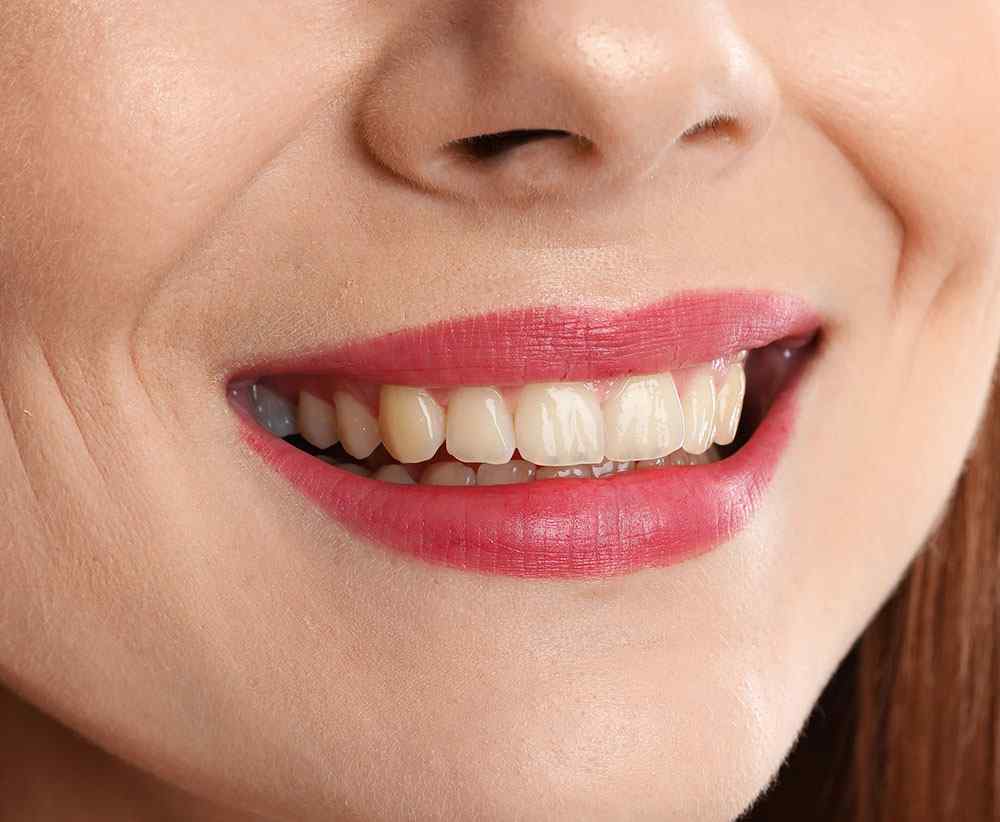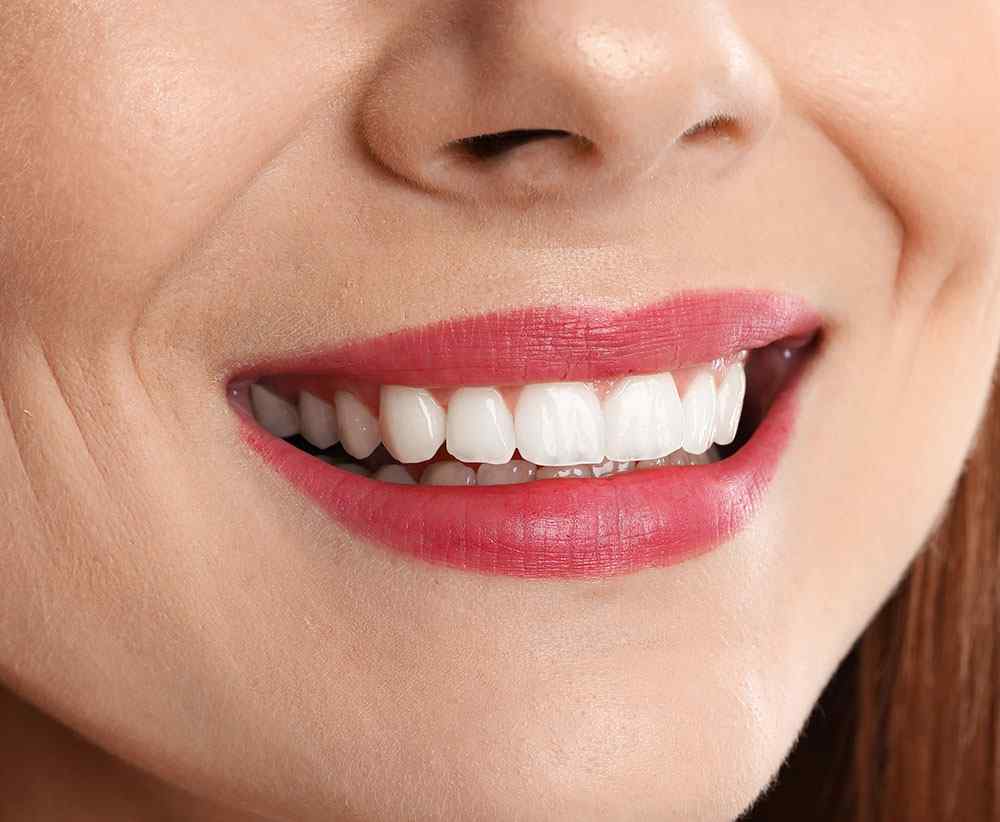Teeth Whitening
Explained
Tooth whitening lightens teeth and helps to remove stains and discoloration. Whitening is among the most popular cosmetic dental procedures because it can greatly improve how your teeth look. Most dentists perform tooth whitening.
Brushing and flossing are everyday ways to keep your teeth bright, white and healthy. Still, if you might feel like your smile is lacking some sparkle or is more yellow than it used to be, you’re not alone.
When the American Academy of Cosmetic Dentistry asked people what they’d most like to improve about their smile, the most common response was whiter teeth. The American Association of Orthodontists also found that nearly 90% of patients requested tooth whitening.
Over time, your teeth can go from white to not-so-bright for a number of reasons. Coffee, tea and red wine are some major staining culprits. What do they have in common? Intense color pigments called chromogens that attach to the white, outer part of your tooth.
Two chemicals found in tobacco create stubborn stains: Tar and nicotine. Tar is naturally dark. Nicotine is colorless until it’s mixed with oxygen. Then, it turns into a yellowish, surface-staining substance.
DentiCare was founded in the first place to create absolutely beautiful smiles.
Why is Whitening
Used for?
The outer layer of a tooth is called the enamel. The color of natural teeth is created by the reflection and scattering of light off the enamel, combined with the color of the dentin under it. Your genes affect the thickness and smoothness of the enamel. Thinner enamel allows more of the color of the dentin to show through. Having smoother or rougher enamel also affects the reflection of light and therefore the color.
Every day, a thin coating (pellicle) forms on the enamel and picks up stains. Tooth enamel also contains pores that can hold stains.
The most common reasons for teeth to get yellow or stained are:
- Using tobacco
- Drinking dark-colored liquids such as coffee, cola, tea and red wine
- Not taking good care of your teeth
Aging makes teeth less bright as the enamel gets thinner and the dentin becomes darker.
It is also possible to have stains inside the tooth. These are called intrinsic stains. For example, intrinsic stains can be caused by exposure to too much fluoride as a child while teeth are developing. Other causes include tetracycline antibiotics. They can stain a child’s teeth if taken by a mother during the second half of pregnancy or by a child who is 8 years old or younger. Teeth are still developing during these years. Trauma may also darken a tooth.
Other dental problems can affect the success of tooth whitening. For example, cavities need to be treated before teeth are whitened. That’s because the whitening solution can pass through decayed areas and reach the inner parts of the tooth. If your gums have receded, the exposed roots of your teeth may appear yellow or discolored. Whitening products will not make them whiter.
If you have tooth decay or receding gums, whitening may make your teeth sensitive. Whitening also does not work on ceramic or porcelain crowns or veneers.
Whitening Preparation &
How it's being done
Whitening can be done in the dental office or at home. For in-office whitening, your dentist probably will photograph your teeth first. This step will help him or her to monitor the progress of the treatment. Your dentist also will examine your teeth and ask you questions to find out what caused the staining.
Next, the dentist or a dental hygienist will clean your teeth. This will remove the film of bacteria, food and other substances that build up on your teeth and contribute to the staining. Once this is done, the whitening procedure begins. For whitening at home, your dentist can make trays to hold the whitening gel that fit your teeth precisely.


Home whitening gel usually needs to be applied daily for two to three weeks. Over-the-counter kits also are widely available for home use. They provide trays to hold the gel, or whitening strips that stick to your teeth. Talk to your dentist if you want to use these home products. Be sure to follow directions to avoid overuse and possible damage to your teeth and mouth.
DentiCare Services
Pongase en contacto
+36 55 544 059
book@denticare.hu
Agenda tu cita
Book a visit to DentiCare, simply fill out the form below and we will contact you back regarding the intervention you require.
